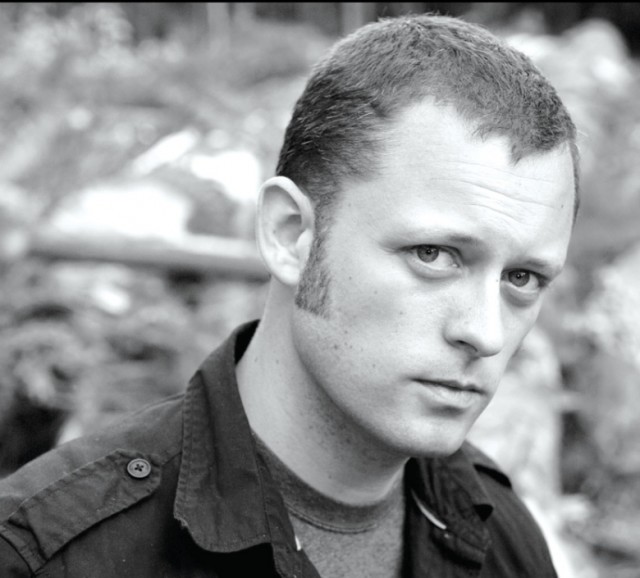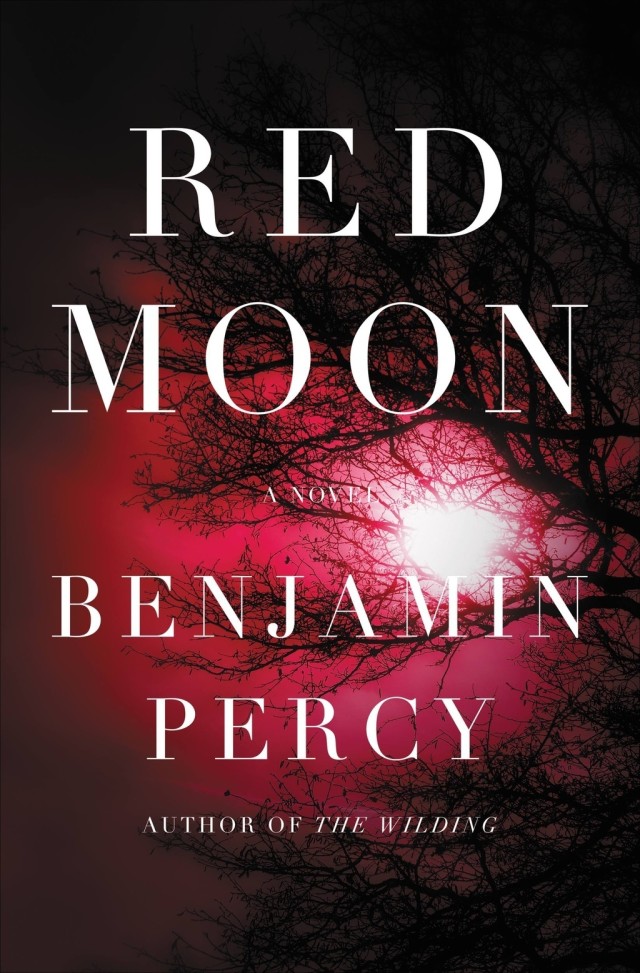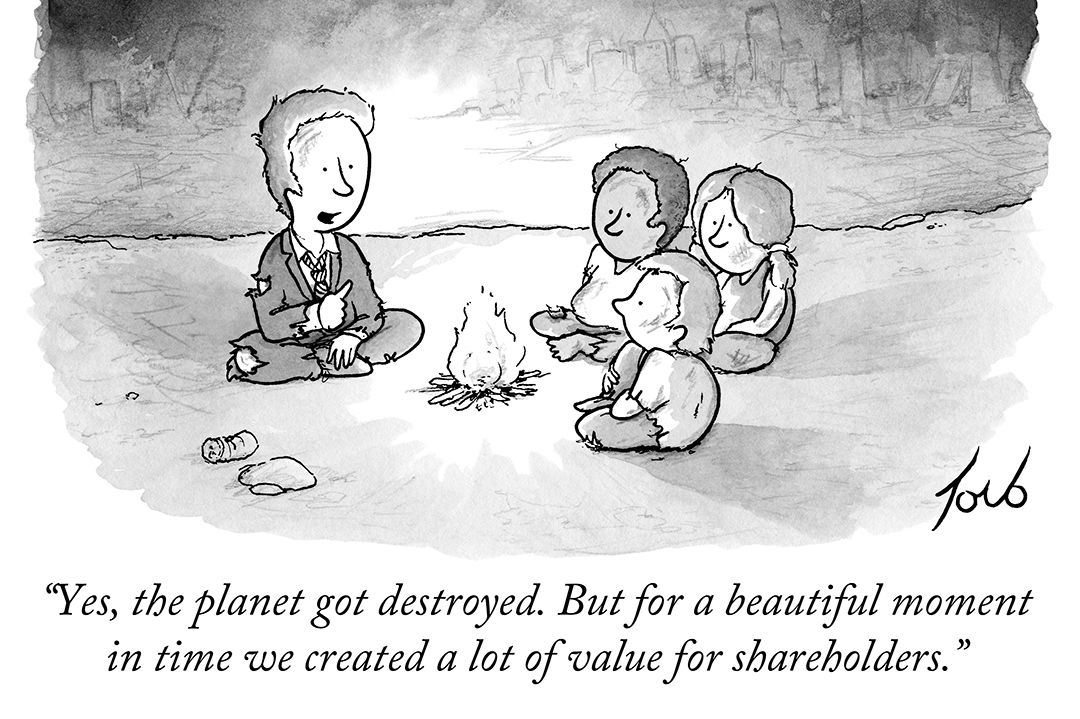Q&A with Benjamin Percy, Author of 'Red Moon'

This month, Oregon-born Benjamin Percy will release his second novel, Red Moon, a horror masterpiece about a werewolf epidemic that draws some eerie parallels to our own War on Terror.
[Read: our full review of Red Moon]
Percy is the author of the 2011 novel The Wilding, as well as the acclaimed story collection Refresh, Refresh. His writing has been read on National Public Radio as well as appeared in a multitude of magazines and journals including GQ, Esquire, Time, Men’s Journal, Outside, The Wall Street Journal, and The Paris Review. He is the writer-in-residence at St. Olaf College and teaches in the low-residency MFA program at Pacific University.
Culturephile talked with Percy about men that howl at the moon, the merging of politics and horror, and Oregon’s inherent ability to terrify.
What made you decide to write a werewolf novel as a way to talk about colonization, xenophobia, and U.S. world politics?
A few years ago when I sat down to write Red Moon, I considered some of my favorite horror stories. The most lasting horror stories are those that seemed to channel cultural unease, to take a knife to the nerve of the moment. Frankenstein is born out of the Industrial Revolution. Dracula is channeling Victorian prudishness. The red scare gave rise to Invasion of the Body Snatchers. Stephen King’s The Dead Zone is so connected to Cold War anxieties. And since 9/11, there’s been a slew of apocalyptic and post-apocalyptic narratives in literature and film. The thing we fear most now seems to be some kind of combination of disease and terrorism, so I braided those two together.
Benjamin Percy
Powell’s at Cedar Hill Crossing
May 10 at 7 pm
On the other hand, I don’t appreciate art that answers questions or that editorializes. I try to be political without being polemical. I want people to recognize all sorts of different anxieties and bring their own interpretations to the book and to feel the same way I do when reading a book by Ursula K. Le Guin or Ray Bradbury or Stephen King—that even though these authors are holding a mirror to our world, it’s a mirror with a crack running through it. In that crack is the fantastical element. Fantastical scenarios help us approach complicated political problems.
Did you have any anxiety about writing so-called “genre” fiction? Particularly about a werewolf?
This book has been a long time coming. I grew up on genre. I think most people do. I was obsessed for a long time with mysteries, with techno-thrillers, with fantasy novels. If it had a dragon on the cover, thumbs up. If it had a dragon and a sword, even better. But horror was the genre that enchanted me the most.
One of my favorite places growing up was the horror section of Powell’s. Even thinking of it now makes all the blood rush into my face. I went into my first creative writing workshop thinking this is the stuff stories are made of. If you’re going to write fiction, it should have a rip-roaring plot, it should have a life or death scenario, it should have a robot that shoots lasers from its eyes or an exploding helicopter or a ghost that can wander through walls. On the first day of class, I was told by my professor that you can’t write genre, and I thought, 'what else is there?'
So I became acquainted with the literary greats that filled my syllabi. But years later, I realized I had become bored as a reader, and I needed to get back in touch with what drew me to the page initially. I wanted to take the best of genre fiction and the best of literature fiction and blend them together and become neither fish nor fowl. You can have bunch of pretty sentences and three-dimensional characters, but also keep the reader wondering: what’s going to happen next?

What is it about werewolves that resonates with you?
In a way I’ve always been writing about werewolves. My characters have always been hairy on the inside. Now I’m just dealing with that more exclusively. The werewolf myth is one everyone can relate to. We’ve all gone a little crazy as a result of drunkenness, anger, or rage. Only later—maybe the next morning—do we feel regret. The werewolf story informs Dr. Jekyll and Mr. Hyde. It informs the Incredible Hulk. It is about an unleashed Id. I’m trying to have Red Moon be less about the moon and the howling and the claws and the fangs and more about the human angle, the wildness we all have inside of us, escaping.
What kind of research did you do to make your werewolves human?
I spent a lot of time at the USDA labs and with Iowa State researchers trying to figure out the slippery science behind this animal-born pathogen that’s at the heart of the novel. I wanted to reinvent the werewolf myth and make it somehow possible. In Red Moon, you have a disease that’s not so different from mad cow disease and chronic wasting disease.
The Northwest figures prominently in the book. What is it about this place that makes us perfect for horror?
Growing up in central Oregon, I encountered danger on a weekly basis: rattlesnakes curled up in dry riverbeds, sheep that had been gnawed up by coyotes, vultures swirling in the sky, nests of black widows underneath our porch, scorpions hiding beneath the stones in our backyard. I had several people I knew growing up who were in skiing and rafting and snowmobile accidents and died.
You’re always hearing about somebody in Oregon who goes down the wrong logging road at the wrong time and ends up running out or gas or getting a flat tire and ends up starving to death or dying of exposure or someone trying to summit Hood and getting caught up in an avalanche. You’re always hearing about people along the coast who are knocked down and dragged away by a sneaker wave. These sorts of headlines had an effect on me growing up, as did my mother who was constantly warning me about all the things that might kill me.
The near-miss terrorist attack at the 2010 Portland tree lighting ceremony makes a sideways appearance in Red Moon. Why?
I’ve gone to that ceremony many times. And when I heard about the man who wanted to set off that bomb, all of the what-if situations ran through my head. I have kids of my own, and the horror of such an act makes my skin tighten up with gooseflesh. I felt like I had to find some kind of fictional outlet to that, and a lot of Portlanders will feel the same when reading it.
I’ve heard rumors that Red Moon might be made into a feature film. Is that true?
It is true, but Hollywood is all about speculation. So until I’m on set, I can only say who knows.




